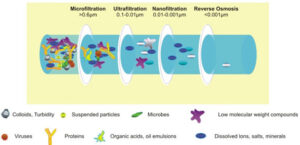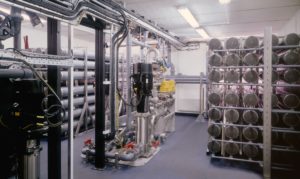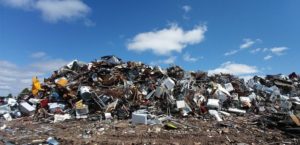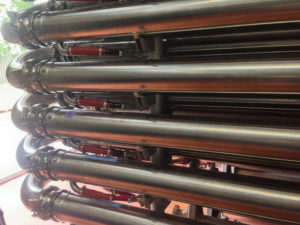
A membrane can be defined as an interface between two phases. In membrane separation processes, this interface is usually a physical barrier that is permeable to some of the species present in one of the streams. In order to carry out the process, a driving force is necessary, in this case pressure. There are in […]
View More
Tubular Membranes PCI Membranes®’ own 12mm diameter tubular membranes are used in the Fyne process due to their ability to handle suspended solids without blocking of membrane pores. The Nano-Filtration (NF) membranes retain contaminants on the raw water side and allow potable water to permeate. The deposition of impurities upon the membrane’s surface is minimised […]
View More
Multi-stage Treatment of Landfill Leachate Landfilling of waste leads to the production of leachate which usually has a high BOD and COD together with nitrogen, inorganics and organic halides. Many factors determine the quantity and composition of leachate – waste types, disposal methods, construction and age of the landfill, and climatic/seasonal effects being amongst the […]
View More
Karolina Pokus, MSc. Chemical & Process Eng. Application Engineer One of the newest technologies in the food industry is the application of membrane technology, which has seen the replacement of traditional multi-stage filtration, separation and evaporator process with a single membrane process. The rapid expansion of membrane technology is dictated by the many advantages like the […]
View More